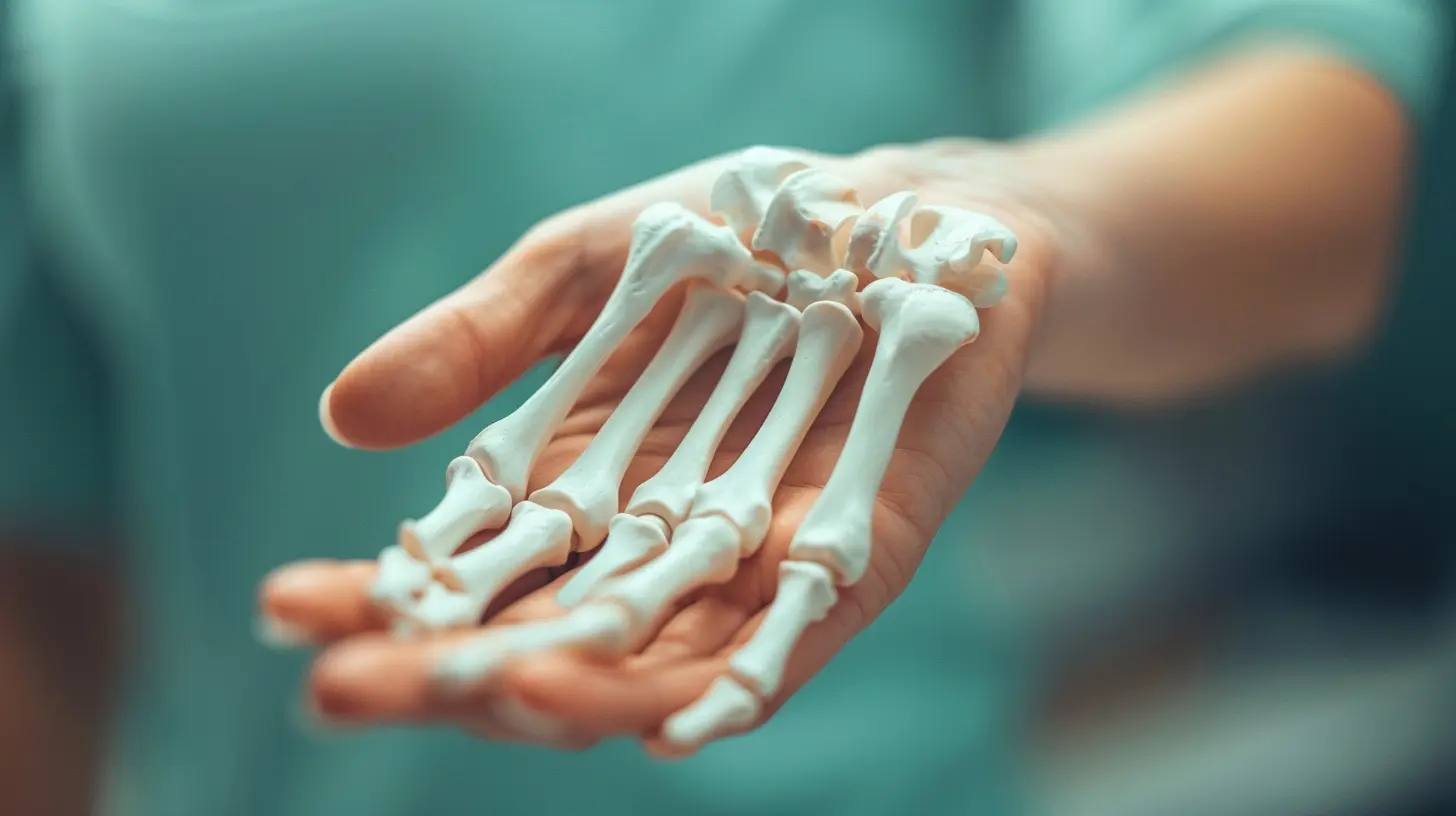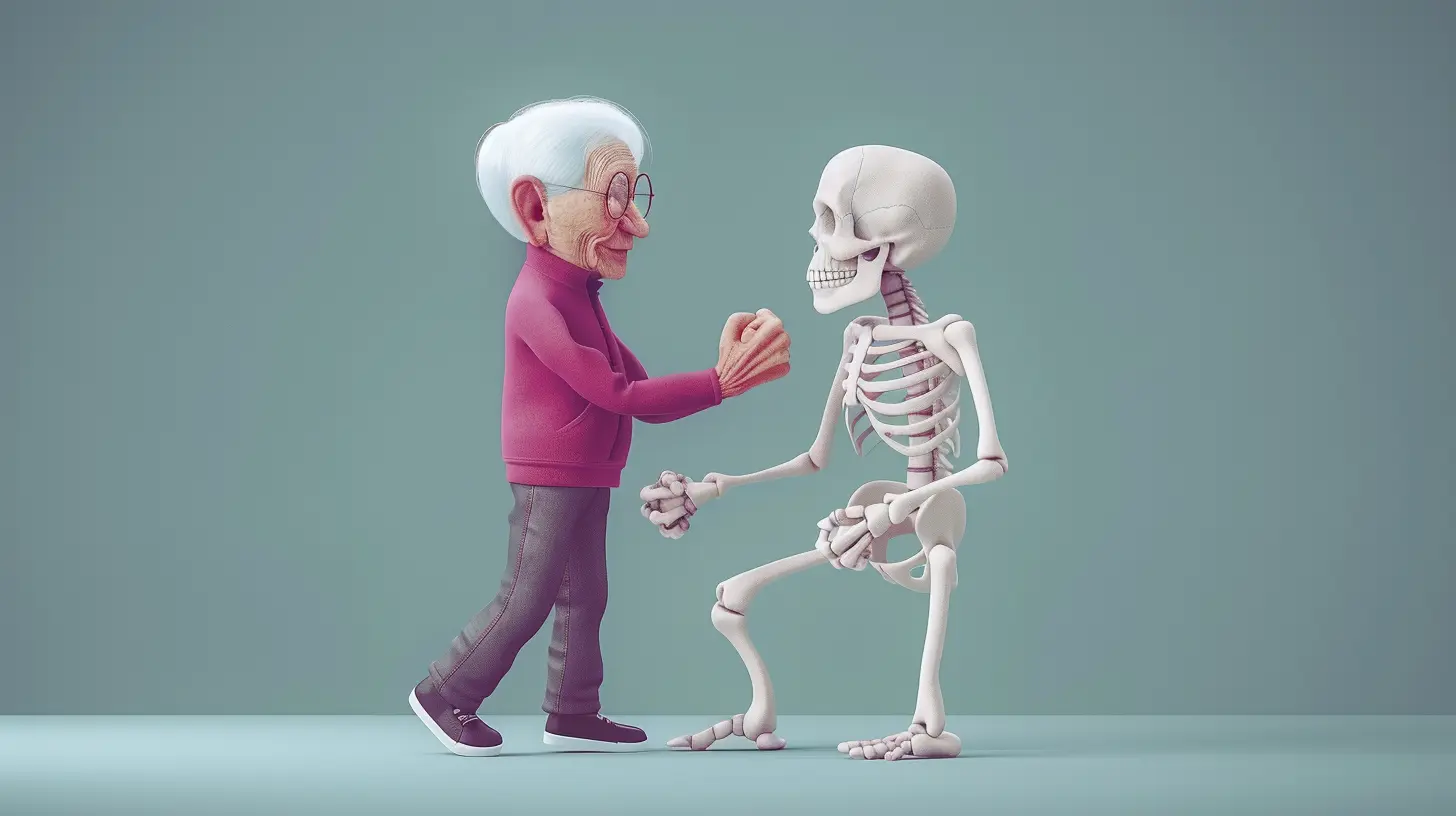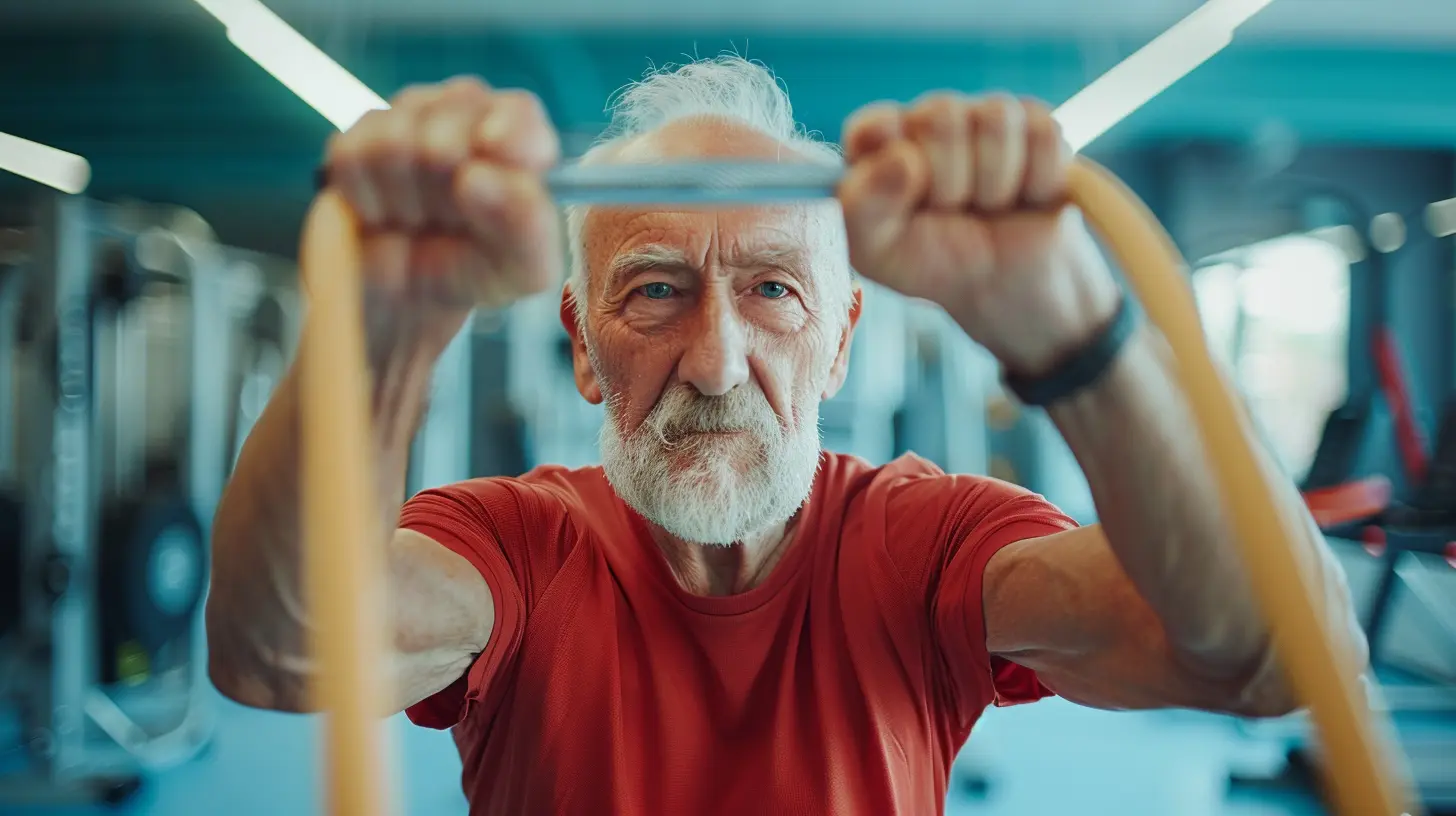How to Maintain Bone Strength as You Age
18 September 2025
Aging is a natural part of life, but let’s face it—our bones don’t get any younger. You might not think much about your bones when you're young, but as time passes, they can become weaker and more fragile. The good news? Bone loss isn’t an inevitable part of aging. By making simple lifestyle changes, you can keep your bones strong and resilient well into your later years.
But how exactly do you maintain bone strength as you age? Let’s break it down.

Why Bone Health Matters More Than You Think
Bones do more than just hold us upright—they’re the foundation of our entire body. They protect vital organs, store essential minerals, and allow us to move freely. As we age, we start losing bone density, which increases the risk of fractures, osteoporosis, and mobility issues.The scary part? Bone loss often happens silently. You won’t feel it until it’s too late—until that sudden fall leads to a broken hip or a fractured wrist. That’s why taking care of your bones before problems arise is crucial.

Signs Your Bones Might Be Weakening
Before we dive into solutions, let’s take a moment to recognize the warning signs. If you experience any of these, it might be time to prioritize your bone health:- Frequent fractures – If you break bones easily from minor falls, it could be a sign of low bone density.
- Loss of height – Shrinking over time? This can indicate bone loss in your spine.
- Stooped posture – A hunched back or difficulty standing straight may suggest weakened spinal bones.
- Joint or bone pain – Achy joints and bones shouldn’t be ignored.
So, what can you do to maintain strong bones as you age? Let’s get into the details.

1. Get Enough Calcium—But Don’t Go Overboard
Calcium is the building block of strong bones. If your body doesn’t get enough, it will steal calcium from your bones, making them weaker over time.Best Sources of Calcium
- Dairy products like milk, cheese, and yogurt- Leafy greens (kale, spinach, collard greens)
- Almonds
- Tofu and soy products
- Sardines and salmon with bones
But here’s the catch—getting too much calcium (especially from supplements) can increase the risk of heart problems and kidney stones. Aim for 1,000 mg per day if you're under 50 and 1,200 mg if you're over 50.

2. Don't Forget Vitamin D
Calcium needs a sidekick to do its job—enter Vitamin D. Without it, your body can’t absorb calcium properly, no matter how much you consume.How to Get Enough Vitamin D
- Sun exposure (about 10-30 minutes a few times a week)- Fatty fish like salmon and mackerel
- Egg yolks
- Fortified foods (milk, cereals, and orange juice)
- Supplements (if you’re deficient)
Many adults don’t get enough Vitamin D, especially in colder months. If you're unsure, a simple blood test can check your levels.
3. Strength Training and Weight-Bearing Exercises
Your bones respond to stress by getting stronger—kind of like muscles. That’s why weight-bearing exercises are one of the best ways to maintain bone strength.Best Exercises for Bone Health
- Weight lifting – Strength training helps build bone mass and prevent bone loss.- Walking or jogging – Simple yet effective for maintaining bone density.
- Yoga and Pilates – Improves balance and flexibility, reducing fall risk.
- Dancing – Fun and great for bone strength!
Aim for at least 30 minutes of weight-bearing activity most days of the week.
4. Eat Bone-Friendly Nutrients
Calcium and Vitamin D aren’t the only players in bone health. Your bones need a mix of nutrients to stay strong.Key Nutrients and Where to Find Them
- Magnesium – Found in nuts, seeds, leafy greens, and whole grains.- Vitamin K – Essential for bone formation (found in broccoli, spinach, and Brussels sprouts).
- Omega-3 Fatty Acids – Helps reduce bone loss (found in salmon, flaxseeds, and walnuts).
- Protein – Supports bone repair (found in eggs, chicken, beans, and lentils).
Eating a balanced diet with plenty of whole foods ensures your bones get everything they need.
5. Cut Back on Bone-Damaging Habits
Some lifestyle habits can speed up bone loss without you even realizing it.What to Avoid
- Excessive alcohol – Can interfere with calcium absorption. Keep it moderate (1 drink per day for women, 2 for men).- Smoking – Weakens bones and slows down healing. If you smoke, quitting is one of the best things you can do for your bones.
- Too much caffeine – More than 3 cups of coffee daily can reduce calcium absorption.
- High-sodium diet – Too much salt can pull calcium from your bones.
Cutting back on these habits today can protect your bones in the long run.
6. Keep Moving—Avoid a Sedentary Lifestyle
Sitting too much isn’t just bad for your posture—it’s bad for your bones. Studies show that a sedentary lifestyle leads to bone loss over time.Easy Ways to Stay Active Daily
- Take the stairs instead of the elevator.- Walk instead of driving short distances.
- Stretch or do light exercises during TV commercials.
- Use a standing desk or take standing breaks at work.
The more active you are, the happier your bones will be.
7. Monitor Your Bone Health
Don’t wait until you break a bone to start caring about bone health. Regular check-ups can help catch bone loss early.How to Track Bone Health
- Bone density tests – Recommended for women over 65 and men over 70 (or earlier if at high risk).- Routine blood tests – Check calcium and Vitamin D levels.
- Talking to your doctor – If you have a family history of osteoporosis, don’t ignore potential risks.
Being proactive now can help you maintain strong bones for years to come.
Final Thoughts
Your bones work hard for you—so it’s only fair that you return the favor! Small, consistent changes in your diet and lifestyle can go a long way in keeping your bones strong and preventing fractures down the road.Start today. Get moving, eat right, and give your bones the love they deserve. Your future self will thank you!
all images in this post were generated using AI tools
Category:
Healthy BonesAuthor:

Laura Hudson
Discussion
rate this article
1 comments
Zia Middleton
Prioritize weight-bearing exercises, balanced nutrition, and regular check-ups to sustain bone health effectively.
October 12, 2025 at 4:53 AM

Laura Hudson
Thank you for your insightful comment! Prioritizing weight-bearing exercises, balanced nutrition, and regular check-ups is essential for maintaining bone strength as we age.


